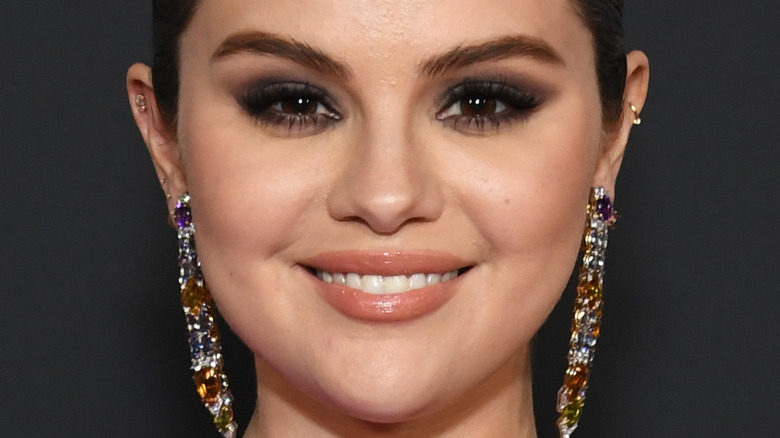Selena Gomez's Documentary Dives Into Lowest Moment Of Her Mental Health Struggles
The following article includes references to mental health issues, emotional abuse, and drug addiction.
Selena Gomez is one of the most-followed people on Instagram and she's one of the most beloved Disney Channel alums out there. Gomez brought people a lot of joy while playing Alex Russo on "Wizards of Waverly Place" and continues to do that today. In "Only Murders in the Building," she stars alongside Martin Short and Steve Martin. It's a bit darker than her time on Disney Channel but still showcases Gomez's same great talent.
Although she frequently posts on social media and seems to have a very grounded friend group, Gomez has struggled with her mental health. She delves into her experience in her documentary, "Selena Gomez: My Mind & Me." As Vulture reported, Director Alek Keshishian started filming Gomez for this documentary in 2015. He calls the documentary "raw" and not just another "pop doc" (via Variety), and a major aspect in Gomez's life is her struggle with bipolar disorder.
Selena Gomez went into psychosis and was diagnosed with bipolar disorder
As Page Six reported from the documentary, out on November 4, Selena Gomez had a mental breakdown during her "Revival" tour in 2016. Gomez's assistant at the time, Theresa, described what it was like seeing Gomez go through this for the Apple TV+ documentary. "At one point, she's like, 'I don't want to be alive right now. I don't want to live,'" she said. "And I'm like, 'Wait, what?' It was one of those moments where you look in her eyes, and there's nothing there. It was just pitch black. It's so scary." Gomez says in the doc that she didn't want to go to a mental health hospital, but the alternative was worse.
Gomez told Rolling Stone that she started to hear voices in 2018, leading to an episode of psychosis she doesn't remember much of. Gomez was in a near-constant state of paranoia and was unrecognizable to her friends at the time. She was then diagnosed with bipolar disorder and sent to another treatment facility. While there, she got her medications to manage her bipolar symptoms down to just two, Rolling Stone reported. But those two daily medications mean she most likely will not be able to carry children biologically. "That's a very big, big, present thing in my life," she said about her desire to be a mother. Gomez looked on the brighter side saying, "However I'm meant to have them, I will."
If you or someone you know needs help with mental health, please contact the Crisis Text Line by texting HOME to 741741, call the National Alliance on Mental Illness helpline at 1-800-950-NAMI (6264), or visit the National Institute of Mental Health website.

